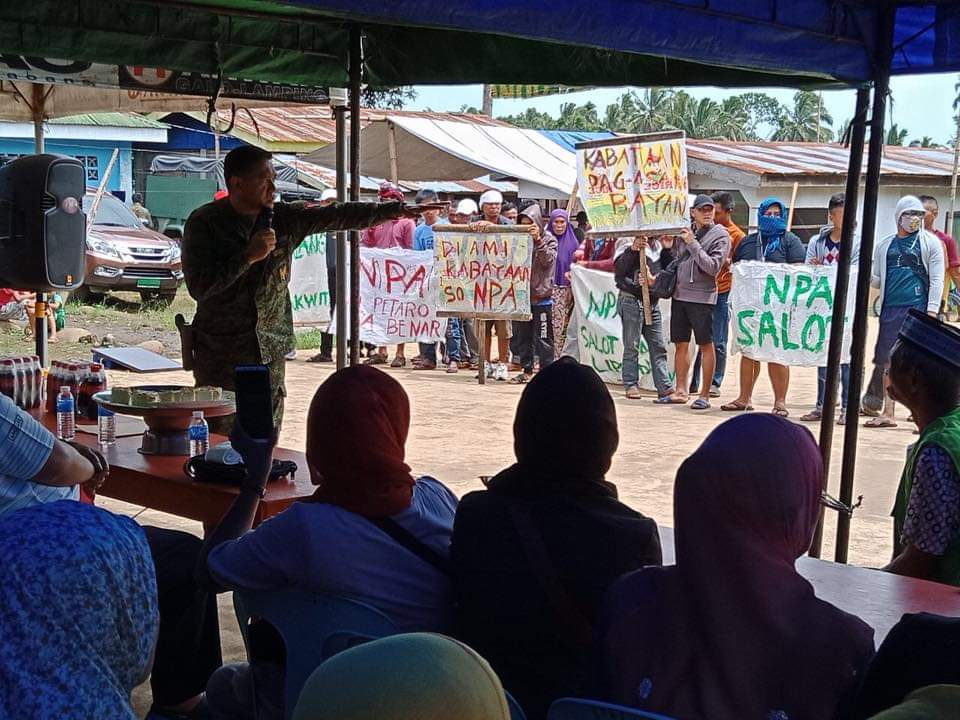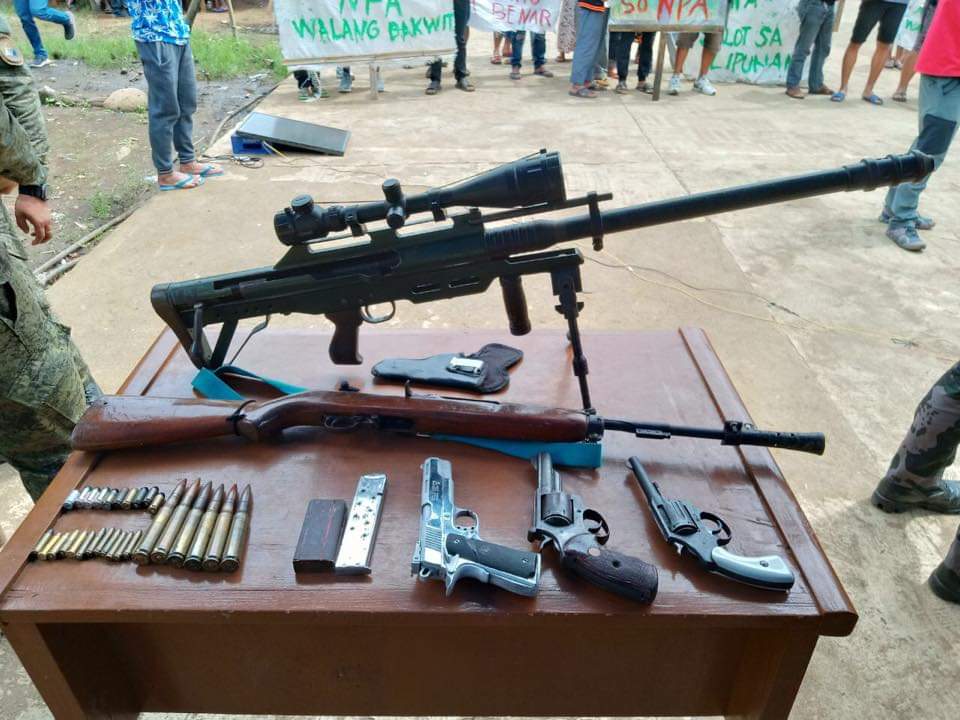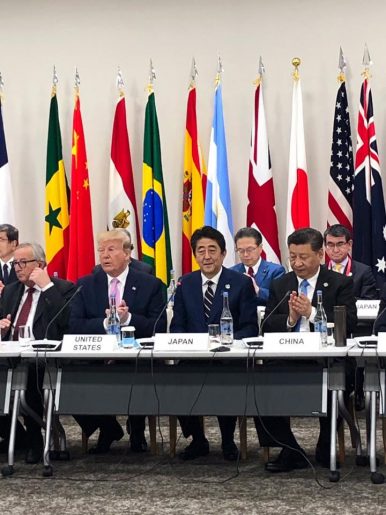The 103rd Infantry Brigade of the Philippine Army foils an attempt by the rebels to establish an operation in Lanao del Sur

After a weeklong combat operation against New People's Army (NPA) rebels in Lumba Bayabao town in Lanao del Sur, 21 suspected NPA rebels and 4 alleged members of a local terrorist group (LTG) surrendered to the 103rd Infantry Brigade of the Philippine Army under the command of Brigadier General Romeo Brawner.
On July 28, troops from the 103rd Infantry Brigade encountered the communist terrorist group (CTG) entering Lumba Bayabao in the attempt to establish a foothold in the area and to elude military operations in Bukidnon.
“The relentless offensive of the troops pressured the enemy forces to flee and this prompted their supporters to surrender. The said supporters revealed that they were obliged to support the CTGs in their area due to the fear that they will be hurt or killed if they refuse to support the CTGs”, Brawner said.
Air and artillery strikes pounded the hideout of the NPA rebels who crossed the Bukidnon-Lanao del Sur boundary to set up a stronghold in the province.
The NPA rebels surrendered 10 am, Friday, August 2, according for reports from the 103rd IB obtained by Rappler.
Brawner said that one of the supporters of the CTG was a minor who surrendered to Lieutenant Colonel Edgar Allan Villanueva, commander of the 49th Infantry Battalion.
CTG is the military designation for NPA rebels, the armed wing of the Communist Party of the Philippines which was declared by President Rodrigo Duterte as a terrorist organization. LTG is the designation for local terror groups like Maute and Abu Sayyaf, Bangsamoro Islamic Freedom Fighters (BIFF) and other organizations.
“Two of the surrendered LTGs were involved in the attack of Butig town in the year 2016”, Brawner said.
The surrender was a result of the joint effort with the local government unit of Lumba Bayabao headed by Mayor Mahar Dagalangit and the town police.
The surrenderees yielded one rocket propelled grenade, one M1 Carbine rifle, one 1911A1 cal. 45 pistol, two cal. 38 revolvers and ammunitions.

SEIZED. Part of the cache surrendered by NPA suspects in Lumba Bayabao town in Lanao del Sur on August 2, 2019. Photo from 103rd IB Civil Military Operations command
On July 28, troops from the 103rd Infantry Brigade encountered the communist terrorist group (CTG) entering Lumba Bayabao in the attempt to establish a foothold in the area and to elude military operations in Bukidnon.
“The relentless offensive of the troops pressured the enemy forces to flee and this prompted their supporters to surrender. The said supporters revealed that they were obliged to support the CTGs in their area due to the fear that they will be hurt or killed if they refuse to support the CTGs”, Brawner said.
Air and artillery strikes pounded the hideout of the NPA rebels who crossed the Bukidnon-Lanao del Sur boundary to set up a stronghold in the province.
The NPA rebels surrendered 10 am, Friday, August 2, according for reports from the 103rd IB obtained by Rappler.
Brawner said that one of the supporters of the CTG was a minor who surrendered to Lieutenant Colonel Edgar Allan Villanueva, commander of the 49th Infantry Battalion.
CTG is the military designation for NPA rebels, the armed wing of the Communist Party of the Philippines which was declared by President Rodrigo Duterte as a terrorist organization. LTG is the designation for local terror groups like Maute and Abu Sayyaf, Bangsamoro Islamic Freedom Fighters (BIFF) and other organizations.
“Two of the surrendered LTGs were involved in the attack of Butig town in the year 2016”, Brawner said.
The surrender was a result of the joint effort with the local government unit of Lumba Bayabao headed by Mayor Mahar Dagalangit and the town police.
The surrenderees yielded one rocket propelled grenade, one M1 Carbine rifle, one 1911A1 cal. 45 pistol, two cal. 38 revolvers and ammunitions.

SEIZED. Part of the cache surrendered by NPA suspects in Lumba Bayabao town in Lanao del Sur on August 2, 2019. Photo from 103rd IB Civil Military Operations command
The former members of the LTG and NPA rebels pledged their allegiance to the constitution and denounced the CPP-NPA.
The Lumba Bayabao town officials also declared the NPA as persona nan grata, the first such declaration made in the province of Lanao del Sur.
Lanao del sur Governor Bombit Adiong said that his province has been coordinating with the security sector and other organizations like the United Nations Development Program to avoid another human-induced disaster like the Maute siege.
"I am relieved to hear of the surrender made by the rebels and terrorists to the 103rd Brigade. We have a current reintegration and deradicalization program for such surrenderees to ensure they will not be lured back to the culture of violence, and this is in partnership with the 103rd Brigade, the UNDP and Balay Mindanao," Adiong said.
Lanao del Sur remains to be one of the country's poorest and least developed province caused by decades of security issues including LTG, CTG and blood feud between ruling families.
“We will assist the surrendees to the Enhanced Comprehensive Local Integration Program. Likewise, separate integration program for the LTGs of Lanao”, Brawner added.
Major Genenel Roberto Ancan, the 1st Infantry Division and Joint Task Force Zampelan (Zamboanga Peninsula and Lanao Provinces) commander, lauded the local government unit of Lanao del Sur on the successful surrender of CTGs and LTGs and the declaration of the CTG as persona non grata.
“Your 1st Infantry (TABAK) Division, in collaboration with the LGUs and other stakeholders, remains steadfast in its commitment to attain just and lasting peace in our area of operation thru our campaign against terrorist groups and loose firearms,” said Ancan.
https://www.rappler.com/nation/236984-npa-surrenders-lanao-del-sur-after-weeklong-military-operation-august-2-2019
The Lumba Bayabao town officials also declared the NPA as persona nan grata, the first such declaration made in the province of Lanao del Sur.
Lanao del sur Governor Bombit Adiong said that his province has been coordinating with the security sector and other organizations like the United Nations Development Program to avoid another human-induced disaster like the Maute siege.
"I am relieved to hear of the surrender made by the rebels and terrorists to the 103rd Brigade. We have a current reintegration and deradicalization program for such surrenderees to ensure they will not be lured back to the culture of violence, and this is in partnership with the 103rd Brigade, the UNDP and Balay Mindanao," Adiong said.
Lanao del Sur remains to be one of the country's poorest and least developed province caused by decades of security issues including LTG, CTG and blood feud between ruling families.
“We will assist the surrendees to the Enhanced Comprehensive Local Integration Program. Likewise, separate integration program for the LTGs of Lanao”, Brawner added.
Major Genenel Roberto Ancan, the 1st Infantry Division and Joint Task Force Zampelan (Zamboanga Peninsula and Lanao Provinces) commander, lauded the local government unit of Lanao del Sur on the successful surrender of CTGs and LTGs and the declaration of the CTG as persona non grata.
“Your 1st Infantry (TABAK) Division, in collaboration with the LGUs and other stakeholders, remains steadfast in its commitment to attain just and lasting peace in our area of operation thru our campaign against terrorist groups and loose firearms,” said Ancan.
https://www.rappler.com/nation/236984-npa-surrenders-lanao-del-sur-after-weeklong-military-operation-august-2-2019
















